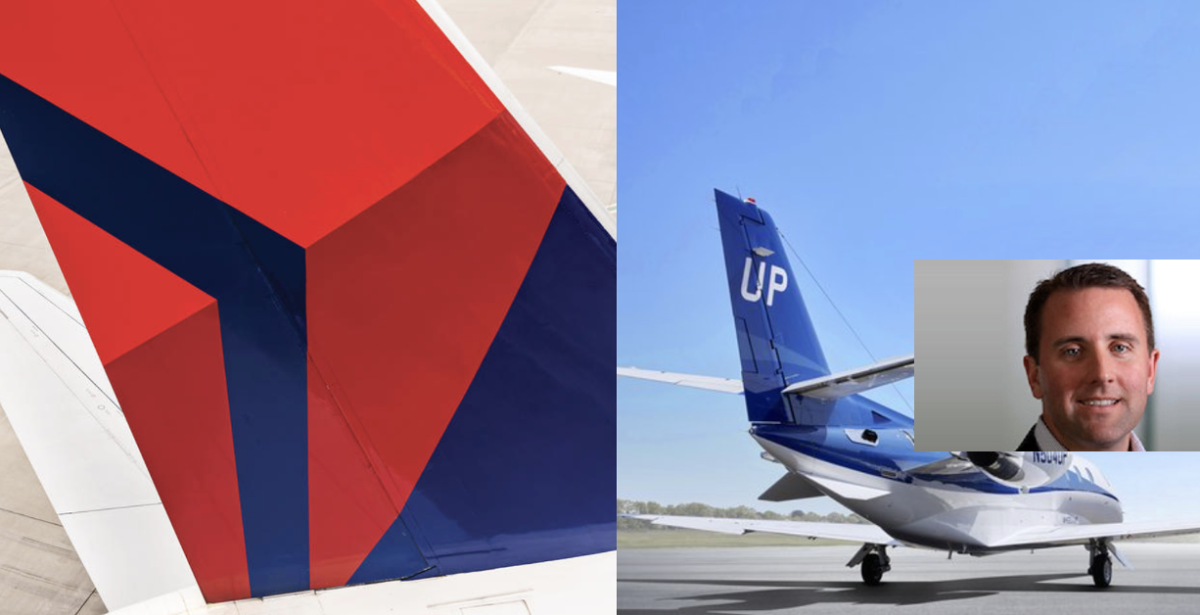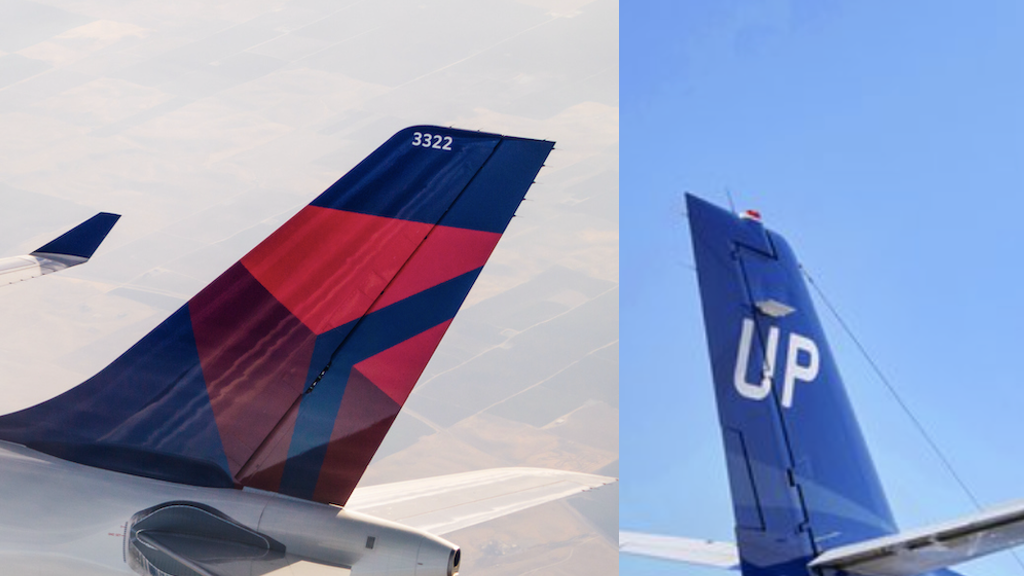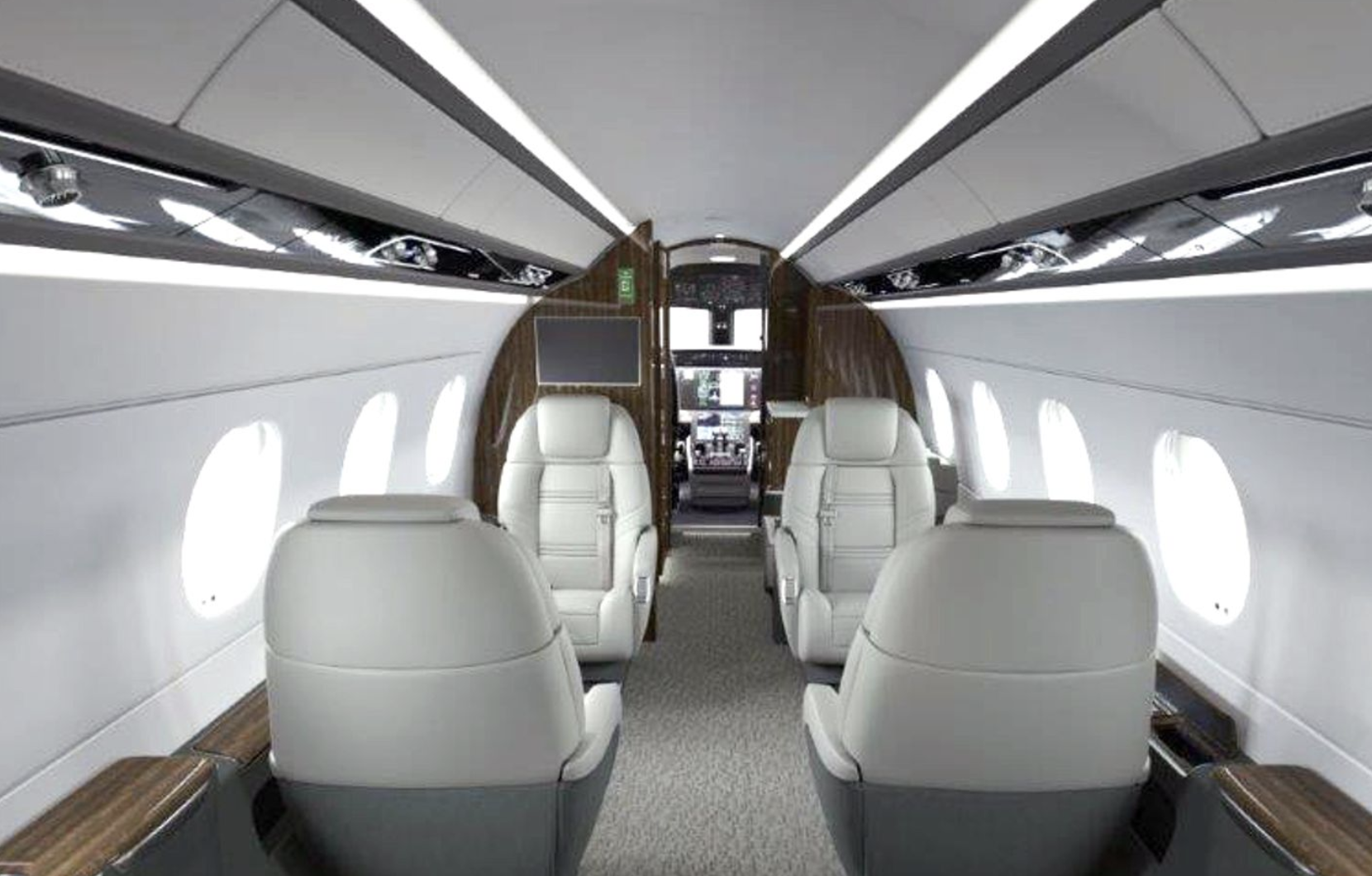Yesterday, Wheels Up announced a $500 million investment led by Delta Air Lines.
While it has been covered as a just-in-time rescue for the third-largest flight provider, and it was just in time, in retrospect, it really shouldn’t have been a big surprise
On May 8, during its Q1 earnings call, in announcing more losses and Founder Kenny Dichter stepping down from his Chairman and CEO roles (he remains on the Board), Wheel Up’s CFO and newly appointed Interim CEO Todd Smith announced it was rolling out a program to sell Wheels Up flights to Delta’s corporate accounts via the airline’s sales team.
Despite a deteriorating cash position in Q1 that was revealed in its earnings filings, a week later, during a talk at The Wings Club, Delta CEO Ed Bastian voiced support for the brand, the business, and its turnaround plan.
When you look at well-run companies like Delta, these things don’t happen by accident.
In that light, it might have been a bigger surprise if Delta didn’t come to the rescue, considering before the transaction, which will give the new group 95% of the company, it already owned 20% from selling Delta Private Jets to Wheels Up in 2020.
I had the chance to speak to Smith under embargo just prior to the announcement, in the early hours out West, where I am traveling.
You can read the stories I wrote yesterday:
Private Jet Card Comparisons: Delta Air Lines’ led group to control 95% of Wheels Up after $500 million deal
Forbes: Delta, New Investors Keep Wheels Up Flying; Here’s Why And What’s Next
With the time to now transcribe the full interview (I’m attending a conference so have been busier than normal), below I wanted to share the full Q&A:
PJCC: Is there a timeframe to get this closed?
Smith: It will take certainly a few weeks to get to that point, but we’ve got the announcement out today that’s naming the parties, and we have full conviction, so we expect to get this closed and to receive those proceeds in as quick a time as possible.
PJCC: While you’re representing Wheels Up, can you give a flavor for why Delta wanted to do this deal?
Smith: As you know, Delta was already a share owner of Wheels Up, and we’ve had a long partnership with them, but as we looked at the company and the opportunity here, what Delta saw was a chance to bring their capability and expertise and, particularly, connect our offering commercially in terms of the members and customers across the two companies in a much stronger way. One of the areas that we’ve really been focused on is growing and expanding our corporate business. There’s no better partner for us to have than the number one airline that has a huge corporate business already. This year we announced a new partnership with them in May where the Delta salesforce is now selling Wheels Up as a product offering, and we think there are even more opportunities to push that even further.
They see it as a really unique opportunity to have a combined private and commercial offering that no one else in the industry can match (with a) seamless integration between the two companies. We’ve long been able to allow Wheels Up customers to use block funds not only for Wheels Up but also on Delta. For us, it’s the extension of a terrific partnership already, and they see terrific value along with Certares and Knighthead, ‘We now have a business plan that’s putting us in the right direction. We’ve got real partnership and expertise from these companies that will be with us alongside, and that’ll create real value over the long term.’
PJCC: What are the results of the efforts from the Delta corporate sales initiative for Wheels Up so far?
Smith: The corporate business is our fastest-growing segment this year. Our team there has done a great job (and) the partnership with Delta has only amplified that. I would say we’re just now starting, so scratching the surface. There are so many more things that we can do between the organizations. A lot of the time that we spent with Delta over the last few weeks working on this facility has been working on some detailed plans with the Delta sales team to make sure that they roll this out in a broader way, that they’ve got this as part of their collateral and are selling this. Then we’ve got some real opportunities to even better integrate the technology between our system, Delta’s system, the apps, and the websites so that customers have the most seamless process possible in terms of booking between the two organizations. That’s how we’re, ultimately, going to go to market as one seamless flow. That will be a huge enabler for us to expand it even further.
PJCC: The Wheels Up concept was about democratization. You’ve had by-the-seat flights seasonally to resort destinations and college football games. Is there anything right now on the table or discussions where you would be able to market buy-the-seat-type flights as you did for Nantucket during the summer to the Delta customers through their technology, their app, and things like that? Is that part of what’s being discussed right now?
Smith: It is part of some of the discussions. We don’t have a formal product on that front at this point to announce or launch, but we’re looking at all the opportunities to say, how can we best serve the full population?
PJCC: Are there any other initiatives like the corporate sales initiative that you announced, tangible interactions with Delta that you could talk about at this point?
Smith: The biggest piece of this, in addition to that product offering, focused on the corporates, is really the additional expertise that we’re getting from Delta in terms of the operations and the operational delivery. Our chairman of operations, Dave Holtz, is a longtime Delta veteran (who led Delta’s integration with Northwest Airlines). As part of this, we expect even more additional resources coming from Delta so that we can really benefit from their expertise on our operations.
You know we announced our new member operations center. That opened in Atlanta earlier this year. It wasn’t by coincidence that we placed it in Atlanta. It was really designed to take advantage of that relationship to the Delta team there. There’s a tremendous opportunity for us to benefit from the skills and expertise inside the Delta organization in terms of the changes that we’re making to our operational delivery.
PJCC: Delta in 2020 sold its private jet business to Wheels Up (while becoming Wheels Up’s largest shareholder). Then the pandemic really changed the view of a lot of well-to-do people and companies about the role of private aviation. Did that have anything to do in terms of (Delta’s) interest in doing this deal or making sure that Wheels Up stayed is a going concern?
Smith: I won’t comment specifically for Delta, obviously, but in our discussions, I believe what the Delta team would say is, coming out of Covid, they had a lot of their own challenges that they had to focus on, and appropriately so that team was really putting all of their intensity on improving Delta, getting it back to a very stable and profitable place, which it is today. They now have the opportunity, given where their position is with their own operations, to think about some of these opportunities with Wheels Up and put a little bit more focus and effort into it.
This allows them to take advantage of some of the points you just made, which is there are a number of macro tailwinds behind this business and this industry. If you’ve got the right product mix and the right delivery model, and the right strategic relationships, which we have now, then we should be in a really strong position to capitalize on that. what Wheels Up and Delta offer jointly is incredibly unique in the market. There’s nothing else like it. (Delta CEO) Ed Bastian and the team very much recognize that, and we’re excited to be a part of it.
PJCC: Last week, you announced the deal with Airshare to sell your aircraft management business. What Wheels Up bought from Delta – Delta Private Jets was a management business. With this investment being led by Delta, is there now any rethinking about what you want to divest or changes to the strategy you announced in May?
Smith: No. We’re still very much focused on the same strategy that we’ve been executing, and Delta’s very supportive of that. For us, what we’re trying to build in terms of a business model is one that’s more balanced between a programmatic kind of guaranteed availability offering and one that has more of an on-demand charter capability. Over time we expect our revenue mix to be more balanced between those two business models. Then within that programmatic offering, we will also have a more balanced division between individual flyers and corporate flyers.
As we think about what we’re trying to put together, we say, ‘Let’s have this controlled fleet that we can guarantee availability and supply. Let’s support that with a membership model, but one that’s more evenly balanced between individuals who are flying Fridays, Saturdays, and Sundays, and corporates who are flying Monday through Thursday and gives us really balanced demand allocation across our fleet of assets.’ Then we have another half of the business that’s really very much an on-demand charter business that gives us more operational flexibility. It’s a profitable business. It focuses on the capability that we have with Air Partner, but it allows us to service those customers in a profitable way and in an efficient delivery model that we think we can execute at a higher quality than we’ve done in the past. Getting to that more balanced business model is what’s going to sustain us as we look to be profitable in 2024 and beyond.
PJCC: Is there still the commitment to be EBITDA profitable next year?
Smith: Yes.
PJCC: Because Delta is strong nationally, does this mean any rethinking of the reduced PSA (Primary Service Area where capped hourly rates and guaranteed availability apply)?
Smith: No, it doesn’t. In many ways, it actually even further supports it because if you look where Delta’s largest hubs are and where their largest concentration of customers and particularly their corporate customers, it very much lines up with that East and West Coast model that we’re deploying in terms of programmatic offer. To be clear, we’re not moving away from servicing the entire country. We continue to service it. We’re just altering the delivery model. We’re still flying in the Midwest, the Pacific Northwest. We’re doing that with the on-demand charter model, but we continue to offer that capability to our customers.
PJCC: The rationale for eliminating the guaranteed programs in the Pacific Northwest and Midwest was that the flights – because of the repositioning expenses and expenses to support recovery flights, were loss-making. When you announced the changes, you told members you would honor their contracts to expiration, so up to a year from last May. With new investors, has that changed?
Smith: We are not reconsidering the previous commitment.
PJCC: Certares owns Internova, which is a very large network of travel agencies focused on corporate and luxury travel. They have over 100,000 travel agents. Could you talk about synergies with Certares?
Smith: We’re really excited about the partnership with Certares. They bring a tremendous amount of expertise in that space in the travel industry. There are a lot of opportunities for us to think about how we plug into that in a better way between them and Delta. As you think about the travel services that they offer, what does that translate to in terms of custom and on-demand charter bookings, maybe some group charter, things like that, that could make sense for us. That’s a terrific opportunity and we see that as a real upside for us in the future.
PJCC: Do you have any stats on what percentage of your business comes from travel agents right now
Smith: It’s relatively small. I think this is an area that really provides some opportunity for us, and that would be incremental growth versus what we do today.
PJCC: What about the reverse, with their travel advisors providing travel services for Wheels Up customers when they are on the ground?
Smith: We’re still in the early stages in a lot of those conversations because we’ve just now announced the transaction. The vision is that we create this holistic enterprise that covers the full spectrum from individual commercial flyers all the way through the premium travel segment and then looking at some of those charter options that could be positioned there. Again, we look at this and say, ‘We have a really unique offering and a really unique potential that’s unmatched in the industry.’ We couldn’t be more excited about putting these partners together. Obviously, the financial capital is valuable to us for obvious reasons, but the expertise that comes with these partners is equally valuable to us and probably represents the bigger opportunity over time.
PJCC: From the Q2 financials, fund sales (deposits for future flights) for the quarter went from $333 million (in 2022) to $96 million. I know last year, Wheels Up was promoting the buy now and extending your current rates and terms to drive sales. Still, it’s a big drop, so I’m wondering if there is anything you could talk about in terms of fund programs, offers, or anything you’re going to do to get people making deposits again?
Smith: This announcement underpins an enormous amount of new confidence in this business. A lot of what had challenged us in the last few months was some of the speculation and concern about Wheels Up. Obviously, that influenced people’s willingness and confidence to put down some of the prepaid block funds just because of what they deemed to be some potential uncertainty with the company. Today we erased all that uncertainty, and this underpins an exciting new future for this company. We’re going to go out and trade on that and very much continue to do everything we can to deliver for our customers. We think that they will now have the confidence they need to continue to take advantage of our product offerings, which we believe are unique, and we expect those numbers to rebound quite dramatically, given the position and what we announced today.
PJCC: You had already talked about a better mix between the programmatic guaranteed offering and the dynamic pricing on demand type offer. For the people who are interested in the programmatic type of product, should their expectations be they are going to continue to see the same program or similar program in the current region that you’ve focused on?
Smith: Yes, that is the plan. Our changes were consistent with what we announced earlier this year. We’re focusing on (programmatic offerings in) those denser regions on the east and west coast, and we’re very much excited about that. We price that at a competitive level, and the attractiveness and response there from our customers who fly primarily in those regions has been really strong. This just underpins even further confidence there. We have real conviction in the business model changes we’re making, and this investment from these new parties validates that in many ways. We have a business plan that we believe in that is going to position this business to be extremely strong and competitive, and profitable going forward. Now we have the capital to help us execute that plan.
PJCC: Then the negative person could sit there and say $500 million, that just gives you maybe two more quarters of funding. How would you answer that?
Smith: We sized this investment for what we felt we needed to execute our business plan, get to profitability, deliver cash flow over the long term. This is by no means a short-term facility. This is what we think we need to sustain the business going forward. As we talked about briefly, this level of investment also restores the confidence in Wheels Up. It also creates new opportunities for us. It will also allow us to drive the prepaid block funding model at the levels that we need that also help support the working capital of the business. All this comes down to us delivering exceptional product. We do that and serve our customers well, then we’re confident the customers will come, we’re going to service them, and do so in a way that’s profitable. That’s what supports the business going forward. We couldn’t be more excited about we’re positioned. The future is incredibly bright for Wheels Up.
PJCC: With the announcement of Delta’s CFO Dan Janki as chairman of Wheels Up, are there any other board changes or executive management changes?
Smith: There’s nothing to announce at this point in time. Obviously, as we’ve got new investors and owners coming into the company, I think they’ll take time to work with us on those plans over time. In the near term, we’re incredibly excited to welcome Dan to our board and as chair. Dan was an almost 30-year guy at GE. I was a 25-year guy at GE. We’ve known each other for 20-plus years as colleagues and friends. Dan has been an incredible partner to me as I’ve come into this business already, and we’re certainly excited to continue to work with him on an even broader capacity going forward.
PJCC: Is there anything else that you want to add?
Smith: The big thing for us is that we found new capital here, but more importantly, we found strategic partners. The message to our employees and to our customers and members is really around what can we offer with this type of expertise and this partnership with world-class industry leaders like Delta, Certares, and Knighthead. All of them give us additional opportunities. We’ve got work still to do. We got to continue to execute our turnaround plan. We have to get our operations at the right level. We’re committed to doing that, and now we’ve got even more help from a really great partner in Delta.












